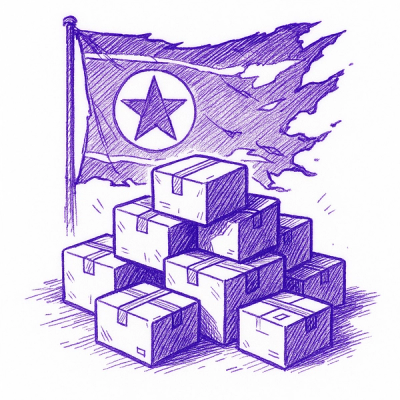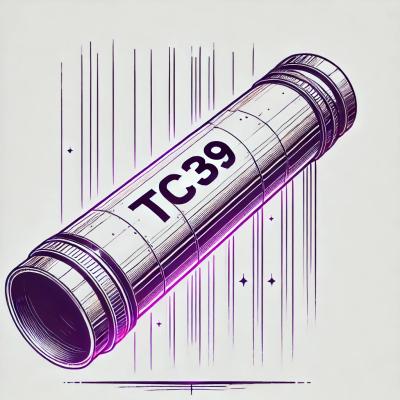
Security News
NVD Quietly Sweeps 100K+ CVEs Into a “Deferred” Black Hole
NVD now marks all pre-2018 CVEs as "Deferred," signaling it will no longer enrich older vulnerabilities, further eroding trust in its data.
@devbookhq/docsets-pipeline-manager
Advanced tools
CLI for adding new documentation to Devbook. The CLI command name is `docsets`. You can start documentation scraping and indexing based on configs in the `devbook-docsets` repository with the `create` sub-command. Then you can release documentation that f
CLI for adding new documentation to Devbook. The CLI command name is docsets. You can start documentation scraping and indexing based on configs in the devbook-docsets repository with the create sub-command. Then you can release documentation that finished scraping and indexing with the release sub-command. If you want to update the documentation with new data, you run the create sub-command again and then update the documentation with the update-release sub-command.
To install the CLI run the following command:
$ npm i @devbookhq/docsets-pipeline-manager@latest -g --unsafe-perm=true --allow-root
You need to set one environment variable before you use the CLI:
GOOGLE_APPLICATION_CREDENTIALS - location of a JSON containing the GCP service account with permission to access PubSub and Secret Manager.The following command starts scraping and indexing documentation defined by configs <configsList...> to the default environment development:
$ docsets create <configsList...>
If you want to use a different environment then use the -e (--env) flag followed by the <env> which is either development or production.
$ docsets create <configsList...> -e <env>
If you want to also deploy VMs for scraping then use the -w (--workers) flag followed by the <workerCount>.
$ docsets create <configsList...> -w <workerCount>
WARNING: VMs created by specifying the CLI flag
-w(--workers) are not yet automatically deleted. If you want the VMs deleted, you must do it manually by going to GCP console and deleting all instances nameddocsets-pipeline-worker-<environment>-<cuid>or by using thegcloudCLI.
If you want to scrape and index a documentation locally you need to have the docsets pipeline running locally and then use the -l (--local) flag.
$ docsets create <configsList...> -l
NOTE: The environment of the local docsets pipeline and the command environment modyfied by the
-e(--env)<env>flag must match.
The following command starts an interactive prompt for releasing a scraped and indexed documentation to the default environment development.
$ docsets release
If you want to use a different environment then use the -e (--env) flag followed by the <env> which is either development or production.
$ docsets release -e <env>
The following command starts an interactive prompt for updating a released documentation in the default environment development.
$ docsets update-release
If you want to use a different environment then use the -e (--env) flag followed by the <env> which is either development or production.
$ docsets update-release -e <env>
The following command starts an interactive prompt for listing all finished, failed, and running works in the default environment development.
$ docsets list
If you want to use a a different environment then use the -e (--env) flag followed by the <env> which is either development or production.
$ docsets list -e <env>
To update the CLI bump the version in package.json and run the following command:
$ npm publish
FAQs
CLI for adding new documentation to Devbook. The CLI command name is `docsets`. You can start documentation scraping and indexing based on configs in the `devbook-docsets` repository with the `create` sub-command. Then you can release documentation that f
The npm package @devbookhq/docsets-pipeline-manager receives a total of 0 weekly downloads. As such, @devbookhq/docsets-pipeline-manager popularity was classified as not popular.
We found that @devbookhq/docsets-pipeline-manager demonstrated a not healthy version release cadence and project activity because the last version was released a year ago. It has 2 open source maintainers collaborating on the project.
Did you know?

Socket for GitHub automatically highlights issues in each pull request and monitors the health of all your open source dependencies. Discover the contents of your packages and block harmful activity before you install or update your dependencies.

Security News
NVD now marks all pre-2018 CVEs as "Deferred," signaling it will no longer enrich older vulnerabilities, further eroding trust in its data.

Research
Security News
Lazarus-linked threat actors expand their npm malware campaign with new RAT loaders, hex obfuscation, and over 5,600 downloads across 11 packages.

Security News
Safari 18.4 adds support for Iterator Helpers and two other TC39 JavaScript features, bringing full cross-browser coverage to key parts of the ECMAScript spec.